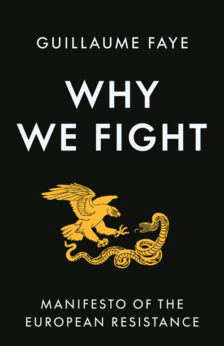The pseudoscience of the modern age began with the elimination of three out of Aristotle’s four causes. Only one, causa efficiens, the cause of motion, was retained. As a result, the object lost its three dimensions — the eidetic, the hylistic, and, above all, the entelechial. The object ceased to be determined by its spiritual meaning, its malleable connection with the elements, and lost the goal of motion, which synthesized the previous three causes. The object became an irrelevant (unknown) moving object. This means that it exists only in motion — disconnected from eternal identity (causa formalis), chaotic malleability/elasticity (causa materialis), and, most importantly, without a goal (causa finalis). Such motion has no final point; it is fundamentally aimless. “These are the atoms and vortices of Democritus and the foundation of Epicurus’ teaching,” will say someone familiar with Greek philosophy. And they will be right.
By removing the final cause, we eliminate the axis around which the world revolves and strip time of its orientation. In essence, from the very beginning, the physics of the Renaissance (Galileo, Newton) laid the groundwork for postmodernism — recycling, post-history, citation, dissolution of meaning, nihilistic irony.
The most false aspect of the modern age culture is not its philosophy but its science. It is the source of civilization’s decline. Nobel Prize laureate Werner Karl Heisenberg, a truly brilliant physicist who worked on quantum theory, once noted: ancient science assembled the world, made it whole, whereas we, the scientists of modernity, disassemble it into meaningless fragments; in striving to conquer it, we destroy it. Modern science is destructive. This is the most dangerous destructive ideology. It deprives everything of meaning, seeking to subject the subtle ontology of the world to its illusory calculations.
If we remove causa finalis, then reality becomes isomorphic — no one and nothing has the correct path. One way is no better than another. At the same time, overall meaninglessness is subject to irreversible mechanical fatalism in particular. This is a totalitarian universe, where all cause-and-effect chains are stronger than steel. True tyranny. This is exactly how Newton constructed his commentaries on the Apocalypse: knowing the causes, we firmly deduce the effects. This is Calvinism applied to science. But what exactly are the causes? Causa efficiens.
This logic underlies the two most totalitarian Western ideologies — liberalism (which is undoubtedly the champion of mental degeneration) and communism. They lead, with iron necessity, to an absolute planetary nightmare. However, Nazism is no better. Just less dogmatic and “scientific.” But it follows the same logic, only applied not to the individual and class (two false mega-concepts of liberals and communists) but to race.
We need to start by reevaluating the concept of causality and return to a true, authentic interpretation of Aristotle’s ideas.
(translated from the Russian by Constantin von Hoffmeister)







